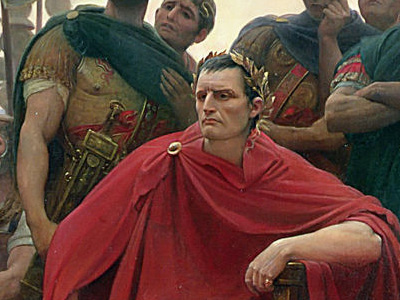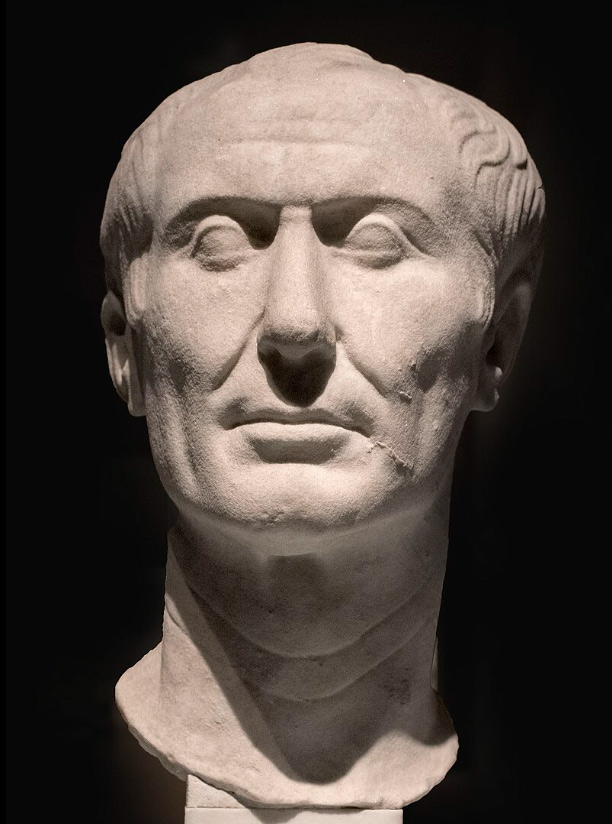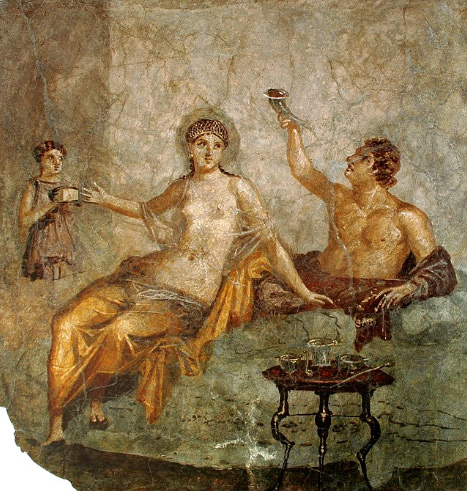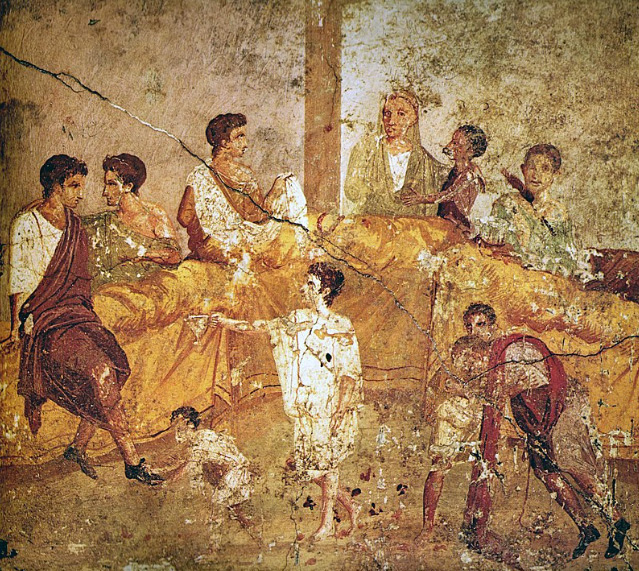Julius Caesar (100-44 BC)
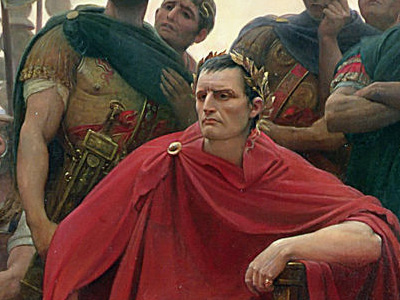
Early Life and Career
Caesar was born into a patrician family, the gens Julia, which claimed descent from Iulus, son of the legendary Trojan prince Aeneas, supposedly the son of the goddess Venus. The cognomen "Caesar" originated, according to Pliny the Elder, with an ancestor who was born by Caesarean section (from the Latin verb to cut, caedere, caes-). The Historia Augusta suggests three alternative explanations: that the first Caesar had a thick head of hair (Latin caesaries); that he had bright grey eyes (Latin oculis caesiis); or that he killed an elephant (caesai in Moorish) in battle. Caesar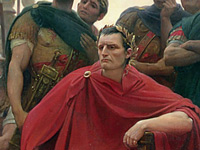 Julius Caesar (100-44 BC), was a Roman politician and general who played a critical role in the events that led to the demise of the Roman Republic and the rise of the Roman Empire. Caesar is considered by many historians to be one of the greatest military commanders in history. Julius Caesar » issued coins featuring images of elephants, suggesting that he favored this interpretation of his name.
Julius Caesar (100-44 BC), was a Roman politician and general who played a critical role in the events that led to the demise of the Roman Republic and the rise of the Roman Empire. Caesar is considered by many historians to be one of the greatest military commanders in history. Julius Caesar » issued coins featuring images of elephants, suggesting that he favored this interpretation of his name.
Despite their ancient pedigree, the Julii Caesares were not especially politically influential, although they had enjoyed some revival of their political fortunes in the early 1st century BC. Caesar's father, also called Gaius Julius Caesar, governed the province of Asia, and his sister Julia, Caesar's aunt, married Gaius Marius, one of the most prominent figures in the Republic. His mother, Aurelia Cotta, came from an influential family. Little is recorded of Caesar's childhood.
In 85 BC, Caesar's father died suddenly, so Caesar was the head of the family at 16. His coming of age coincided with a civil war between his uncle Gaius Marius and his rival Lucius Cornelius Sulla. Both sides carried out bloody purges of their political opponents whenever they were in the ascendancy. Marius and his ally Lucius Cornelius Cinna were in control of the city when Caesar was nominated to be the new high priest of Jupiter, and he was married to Cinna's daughter Cornelia. Following Sulla's final victory, though, Caesar's connections to the old regime made him a target for the new one. He was stripped of his inheritance, his wife's dowry, and his priesthood, but he refused to divorce Cornelia and was forced to go into hiding. The threat against him was lifted by the intervention of his mother's family, which included supporters of Sulla, and the Vestal Virgins. Sulla gave in reluctantly, and is said to have declared that he saw many a Marius in Caesar.
Caesar felt that it would be much safer far away from Sulla should the Dictator change his mind, so he left Rome and joined the army, serving under Marcus Minucius Thermus in Asia and Servilius Isauricus in Cilicia. He served with distinction, winning the Civic Crown for his part in the Siege of Mytilene. He went on a mission to Bithynia to secure the assistance of King Nicomedes's fleet, but he spent so long at Nicomedes' court that rumours arose of an affair with the king, which Caesar vehemently denied for the rest of his life. Ironically, the loss of his priesthood had allowed him to pursue a military career, as the high priest of Jupiter was not permitted to touch a horse, sleep three nights outside his own bed or one night outside Rome, or look upon an army.
Hearing of Sulla's death in 78 BC, Caesar felt safe enough to return to Rome. He lacked means since his inheritance was confiscated, but he acquired a modest house in Subura, a lower-class neighbourhood of Rome. He turned to legal advocacy and became known for his exceptional oratory accompanied by impassioned gestures and a high-pitched voice, and ruthless prosecution of former governors notorious for extortion and corruption.
On the way across the Aegean Sea, Caesar was kidnapped by pirates and held prisoner. He maintained an attitude of superiority throughout his captivity. The pirates demanded a ransom of 20 talents of silver, but he insisted that they ask for 50. After the ransom was paid, Caesar raised a fleet, pursued and captured the pirates, and imprisoned them. He had them crucified on his own authority, as he had promised while in captivity—a promise that the pirates had taken as a joke. As a sign of leniency, he first had their throats cut. He was soon called back into military action in Asia, raising a band of auxiliaries to repel an incursion from the east.
On his return to Rome, he was elected military tribune, a first step in a political career. He was elected quaestor for 69 BC, and during that year he delivered the funeral oration for his aunt Julia, and included images of her husband Marius in the funeral procession, unseen since the days of Sulla. His wife Cornelia also died that year. Caesar went to serve his quaestorship in Spain after her funeral, in the spring or early summer of 69 BC. While there, he is said to have encountered a statue of Alexander the Great, and realised with dissatisfaction that he was now at an age when Alexander had the world at his feet, while he had achieved comparatively little. On his return in 67 BC, he married Pompeia, a granddaughter of Sulla, whom he later divorced in 61 BC after her embroilment in the Bona Dea scandal.
In 63 BC, he ran for election to the post of Pontifex Maximus, chief priest of the Roman state religion. He ran against two powerful senators. Accusations of bribery were made by all sides. Caesar won comfortably, despite his opponents' greater experience and standing. Cicero was consul that year, and he exposed Catiline's conspiracy to seize control of the republic; several senators accused Caesar of involvement in the plot.
After serving as praetor in 62 BC, Caesar Julius Caesar (100-44 BC), was a Roman politician and general who played a critical role in the events that led to the demise of the Roman Republic and the rise of the Roman Empire. Caesar is considered by many historians to be one of the greatest military commanders in history. Julius Caesar » was appointed to govern Hispania Ulterior (modern south-eastern Spain) as propraetor, though some sources suggest that he held proconsular powers. He was still in considerable debt and needed to satisfy his creditors before he could leave. He turned to Marcus Licinius Crassus, one of Rome's richest men. Crassus paid some of Caesar's debts and acted as guarantor for others, in return for political support in his opposition to the interests of Pompey. Even so, to avoid becoming a private citizen and thus be open to prosecution for his debts, Caesar left for his province before his praetorship had ended. In Spain, he conquered two local tribes and was hailed as imperator by his troops; he reformed the law regarding debts, and completed his governorship in high esteem.
Julius Caesar (100-44 BC), was a Roman politician and general who played a critical role in the events that led to the demise of the Roman Republic and the rise of the Roman Empire. Caesar is considered by many historians to be one of the greatest military commanders in history. Julius Caesar » was appointed to govern Hispania Ulterior (modern south-eastern Spain) as propraetor, though some sources suggest that he held proconsular powers. He was still in considerable debt and needed to satisfy his creditors before he could leave. He turned to Marcus Licinius Crassus, one of Rome's richest men. Crassus paid some of Caesar's debts and acted as guarantor for others, in return for political support in his opposition to the interests of Pompey. Even so, to avoid becoming a private citizen and thus be open to prosecution for his debts, Caesar left for his province before his praetorship had ended. In Spain, he conquered two local tribes and was hailed as imperator by his troops; he reformed the law regarding debts, and completed his governorship in high esteem.
Caesar was acclaimed Imperator in 60 and 45 BC. In the Roman Republic, this was an honorary title assumed by certain military commanders. After an especially great victory, army troops in the field would proclaim their commander imperator, an acclamation necessary for a general to apply to the Senate for a triumph. However, he also wanted to stand for consul, the most senior magistracy in the republic. If he were to celebrate a triumph, he would have to remain a soldier and stay outside the city until the ceremony, but to stand for election he would need to lay down his command and enter Rome as a private citizen. He could not do both in the time available. He asked the senate for permission to stand in absentia, but Cato blocked the proposal. Faced with the choice between a triumph and the consulship, Caesar chose the consulship.
HISTORY
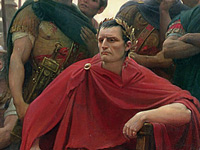
RESOURCES
This article uses material from the Wikipedia article "Julius Caesar", which is released under the Creative Commons Attribution-Share-Alike License 3.0.
© Stories Preschool. All Rights Reserved.
